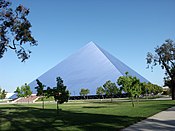
The Harvard Crimson are the intercollegiate athletic teams of Harvard College. The school's teams compete in NCAA Division I. As of 2013, there were 42 Division I intercollegiate varsity sports teams for women and men at Harvard, more than at any other NCAA Division I college in the country. Like the other Ivy League colleges, Harvard does not offer athletic scholarships.
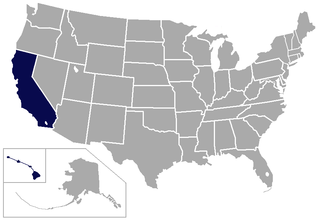
The Big West Conference (BWC) is an American collegiate athletic conference whose member institutions participate in the National Collegiate Athletic Association's Division I. The conference was originally formed on July 1, 1969, as the Pacific Coast Athletic Association (PCAA), and in 1988 was renamed the Big West Conference. The conference stopped sponsoring college football after the 2000 season.

The Sunshine State Conference is a college athletic conference affiliated with the National Collegiate Athletic Association (NCAA) at the Division II level. All of its member institutions are located in the state of Florida, which is popularly known as the Sunshine State.

The Alabama Crimson Tide refers to the intercollegiate athletic varsity teams that represent the University of Alabama, located in Tuscaloosa. The Crimson Tide teams compete in the National Collegiate Athletic Association's Division I as a member of the Southeastern Conference (SEC). The Spirit Squads compete in the UCA and UDA College National Championships.

The Tulane Green Wave are the athletic teams that represent Tulane University, located in New Orleans, Louisiana. Tulane competes in NCAA Division I as a member of the American Athletic Conference. There are 14 Green Wave intercollegiate programs.

The UCLA Bruins are the athletic teams that represent the University of California, Los Angeles. The Bruin men's and women's teams participate in NCAA Division I as part of the Pac-12 Conference and the Mountain Pacific Sports Federation (MPSF). For football, they are in the Football Bowl Subdivision of Division I. UCLA is second to only Stanford University as the school with the most NCAA team championships at 120 NCAA team championships. UCLA offers 11 varsity sports programs for men and 14 for women.
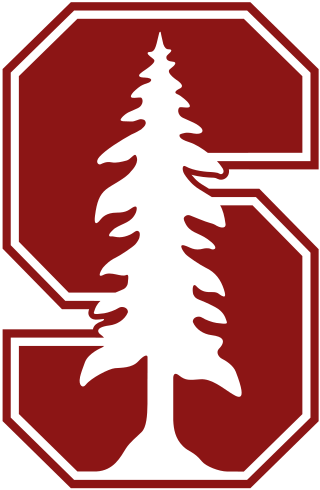
The Stanford Cardinal are the athletic teams that represent Stanford University. As of June, 2022, Stanford's program has won 131 NCAA team championships. Stanford has won at least one NCAA team championship each academic year for 46 consecutive years, starting in 1976–77 and continuing through 2021–22. Stanford won 25 consecutive NACDA Directors' Cups, from 1994–95 through 2018–19, awarded annually to the most successful overall college sports program in the nation. 177 Stanford-affiliated athletes have won a total of 296 Summer Olympic medals, including 26 medals at the 2020 Tokyo games. Stanford's teams compete at the National Collegiate Athletic Association (NCAA) Division I level as a member of the Pac-12 Conference, along with other schools from the western third of the United States.
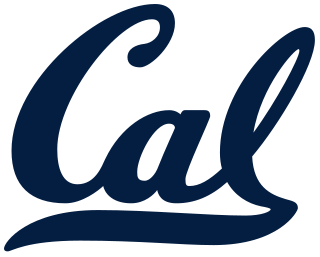
The California Golden Bears are the athletic teams that represent the University of California, Berkeley. Referred to in athletic competition as California or Cal, the university fields 30 varsity athletic programs and various club teams in the National Collegiate Athletic Association (NCAA)'s Division I primarily as a member of the Pac-12 Conference, and for a limited number of sports as a member of the Mountain Pacific Sports Federation (MPSF). Over the course of the school's history, California has won team national titles in 13 men's and 3 women's sports and 111 team titles overall. Cal athletes have also competed in the Olympics for a host of different countries. Notable facilities used by the Bears include California Memorial Stadium (football) and Haas Pavilion. Cal finished the 2010–11 athletic season with 1,219.50 points, earning third place in the Director's Cup standings, the Golden Bears' highest finish ever. Cal did not receive any points for its national championships in rugby and men's crew because those sports are not governed by the NCAA. Cal finished 12th in the 2014-15 standings.
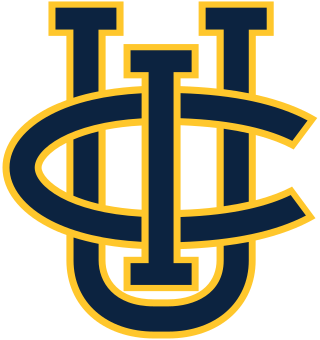
The UC Irvine Anteaters are the athletic teams fielded by the University of California, Irvine. Its athletics programs participate in the NCAA's Division I, as members of the Big West Conference and the Mountain Pacific Sports Federation. For earlier years of the school's existence, the teams participated at the Division II level with great success as explained below.

The Penn State Nittany Lions are the athletic teams of Pennsylvania State University, except for the women's basketball team, known as the Lady Lions. The school colors are navy blue and white. The school mascot is the Nittany Lion. The intercollegiate athletics logo was commissioned in 1983.

The San Diego State Aztecs are the athletic teams that represent San Diego State University (SDSU). San Diego State currently sponsors six men's and eleven women's sports at the varsity level.

The Navy Midshipmen are the athletic teams that represent the United States Naval Academy. The academy sponsors 33 varsity sports teams and 12 club sport teams. Both men's and women's teams are called Navy Midshipmen or "Mids". They participate in the NCAA's Division I, as a non-football member of the Patriot League, a football-only member of the American Athletic Conference in the Football Bowl Subdivision (FBS), and a member of the Collegiate Sprint Football League (men), Eastern Association of Rowing Colleges (men), Eastern Association of Women's Rowing Colleges, Eastern Intercollegiate Gymnastics League (men), Mid-Atlantic Squash Conference (men) and Eastern Intercollegiate Wrestling Association. Navy is also one of approximately 300 members of the Eastern College Athletic Conference (ECAC).

The UC Santa Barbara Gauchos are the intercollegiate athletic teams who represent the University of California, Santa Barbara. Referred to in athletic competition as UC Santa Barbara or UCSB, the Gauchos participate in 19 NCAA Division I intercollegiate sports with the majority competing in the Big West Conference. UCSB currently fields varsity teams in 10 men's sports and 9 women's sports.

The UC San Diego Tritons are the athletic teams that represent the University of California, San Diego. UC San Diego has 23 varsity sports teams and offers student participation in a wide range of sports. As of July 1, 2020, all UC San Diego teams participate at the NCAA Division I (DI) level in the Big West Conference. During their time in NCAA Division II and the California Collegiate Athletic Association starting in the 2000–01 season, UCSD placed in the top 5 in the Division II NACDA Directors' Cup standings nine times, including three 2nd-place finishes. NCSA Athletic Recruiting ranked the Tritons as the nation's top Division II program for eight consecutive years.
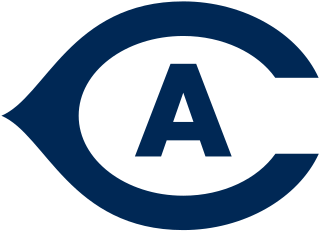
The UC Davis Aggies are the athletic teams that represent the University of California, Davis.

The Cal State Fullerton Titans are the athletic teams that represent California State University, Fullerton.

The Sacramento State Hornets represent California State University, Sacramento in Sacramento, the capital city of the U.S. state of California, in intercollegiate athletics. The school fields 21 teams including men and women's basketball, cross country, golf, rowing, soccer, tennis, and track and field; women's-only gymnastics, beach volleyball, volleyball, and softball; and men's-only baseball and football. The Hornets compete in NCAA Division I, and are members of the Big Sky Conference. The men's soccer and women's beach volleyball teams play as affiliate members in the Big West Conference, the baseball team plays as an affiliate member in the Western Athletic Conference, and the women's rowing team is an affiliate of the American Athletic Conference.

The Western Washington Vikings represent Western Washington University in intercollegiate sports in the Great Northwest Athletic Conference of the NCAA Division II with the exception of the women's rowing team which is a member of the Northwest Collegiate Rowing Conference. WWU has been an official member of NCAA Division II since September 1998.

The McKendree Bearcats are the intercollegiate athletic programs that represent McKendree University, located in Lebanon, Illinois, United States, in intercollegiate sports as a member of the Division II level of the National Collegiate Athletic Association (NCAA), primarily competing in the Great Lakes Valley Conference (GLVC) as a provisional member since the 2012–13 academic year.

The LIU Sharks are the athletics teams representing Long Island University's (LIU) campuses in Brooklyn and Brookville, New York. The Sharks compete in NCAA Division I athletics and are members of the Northeast Conference. The LIU Sharks are the result of the July 1, 2019 unification of the athletic departments which had previously represented two separate campuses of LIU, the NCAA Division I LIU Brooklyn Blackbirds and the NCAA Division II LIU Post Pioneers.























